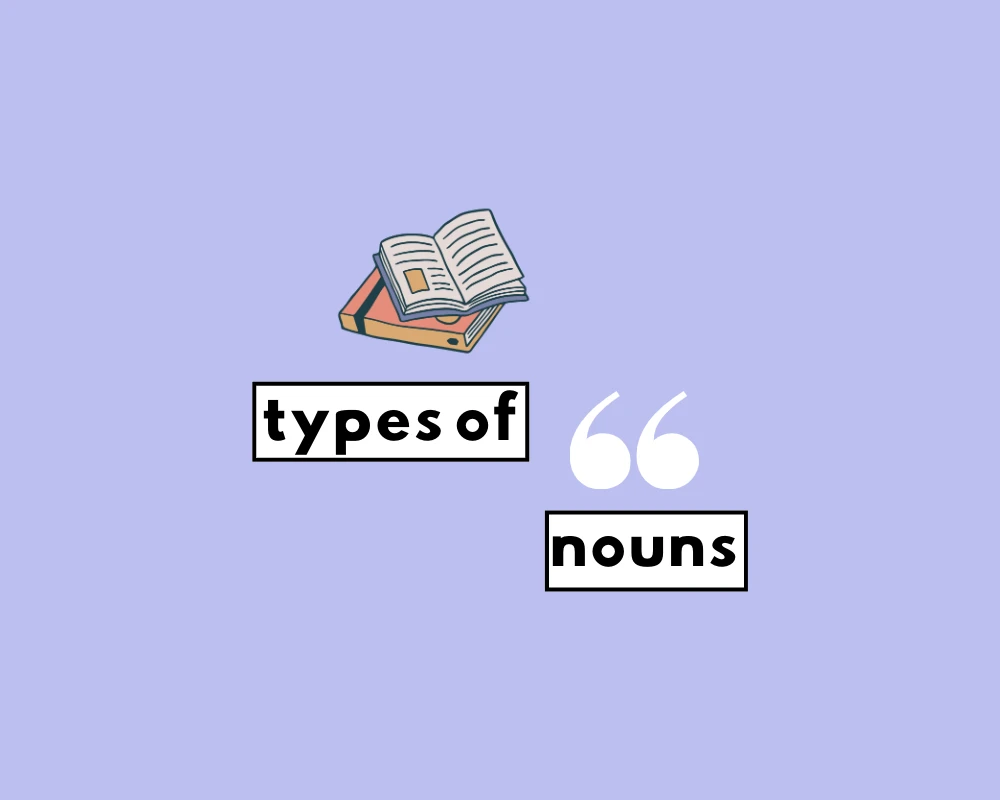Types of Nouns
Nouns are fundamental building blocks of language that name people, places, things, and concepts. Understanding the different types of nouns helps us use them correctly in writing and speech.
My favorite city is Paris.
My favorite City is paris.
Common nouns vs proper nouns
Common nouns name general categories, while proper nouns identify specific individuals, places, or things. The key distinction is that proper nouns always require capitalization.
Common nouns, by contrast, only capitalize at the start of sentences.
| Common Nouns | Proper Nouns |
| The king ruled wisely | Henry VIII was considered an accomplished king |
| She is a girl in school | Sally Jones is a specific person |
| The man is talented | Evan Peters is an actor |
| That city is beautiful | Paris is in Europe |
| Which country did you visit? | I want to visit France next year |
Collective and abstract nouns
Collective nouns refer to groups or collections taken as a whole. Think of an army, fleet, mob, or crowd. Each represents multiple individuals acting as one unit.
| Collective Nouns | Usage Examples |
| crowd | The police managed the unruly crowd at the parade |
| army | The Canadian army was defeated in battle |
| jury | The jury found the accused guilty of the crime |
Abstract nouns represent qualities, states, or actions that can’t be experienced through the five senses. These include concepts like honesty, childhood, and laughter.
| Type | Examples |
| Qualities/Traits | goodness, kindness, braveness, whiteness, darkness, hardness, brightness, honesty, wisdom, bravery |
| Actions | laughter, theft, movement, judgement, hatred |
| States | childhood, boyhood, youth, slavery, sleep, sickness, death, poverty |
For Nouns: Associate “Proper” with “Capital P” to remember Proper Nouns are capitalized; Common Nouns are not.
Countable and non-countable nouns
Most nouns can be counted numerically. A book, pen, chair, and dog are objects we can count.
Non-countable nouns like sand, milk, rice, and water exist in quantities that can’t be counted individually.
| Countable Nouns | Non-countable Nouns |
| one book, two books | sand (no plural form) |
| one pen, three pens | milk (no plural form) |
| one chair, five chairs | rice (no plural form) |
| one dog, many dogs | grass (no plural form) |
| one woman, two women | water (no plural form) |
Learn more about grammar
- When to Use I or Me
- What Are Coordinating Conjunctions?
- The Future Tense (4 Forms)
- What’s an Adverb?
- Superlatives vs. Comparatives
- Parts of Speech
- Types of Verbs
FAQs
What is a common noun?
+
What is a proper noun?
+
Should common nouns be capitalized?
+
When do proper nouns use capitals?
+
Are collective nouns common nouns?
+
Yash, D. "Types of Nouns (Common, Proper, Abstract, and Concrete)." Grammarflex, Jun 15, 2025, https://www.grammarflex.com/types-of-nouns-common-vs-proper-abstract-vs-concrete/.
Sources
Sources
-
English Grammar and Composition by P.C. Wren and Martin.
Worksheet
What are ‘a’, ‘an’, and ‘the’ called in English grammar?
What type of articles are ‘a’ and ‘an’?
When deciding whether to use ‘a’ or ‘an’ before a word, what should you look for?
When do you typically use the definite article ‘the’?
Indefinite articles (‘a’ and ‘an’) refer to:
I saw ___ elephant at the zoo yesterday.
She grabbed ___ book from the shelf.
There is ___ excellent restaurant down the street.
Have you seen ___ phone I was using yesterday?
We determine whether to use the articles “a” or “an” based on ___.











